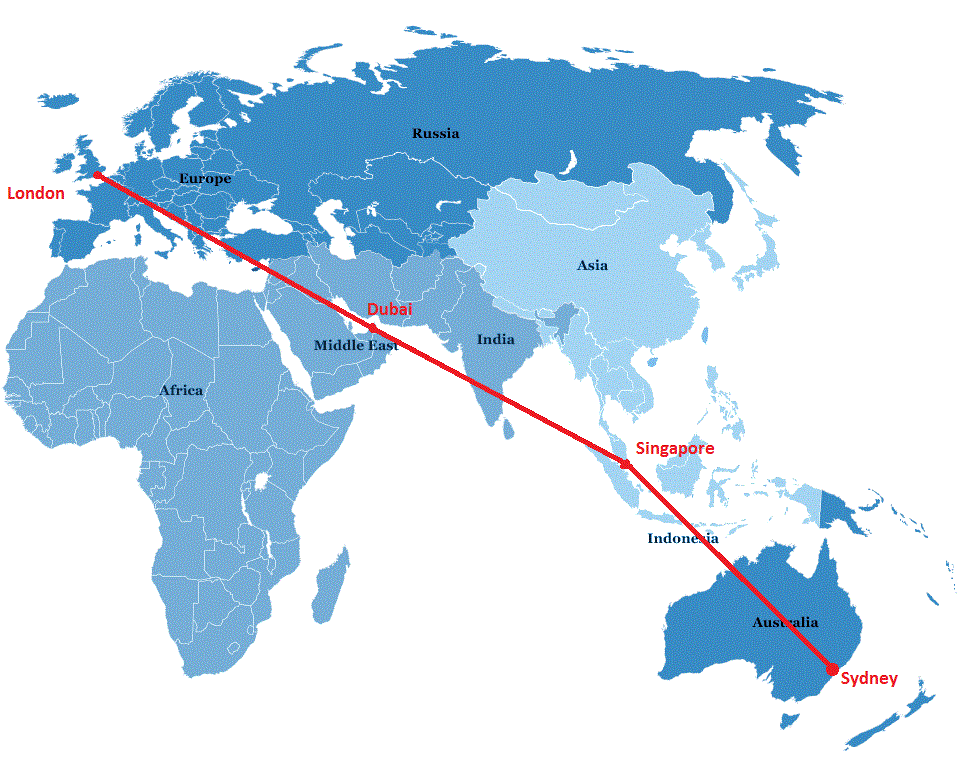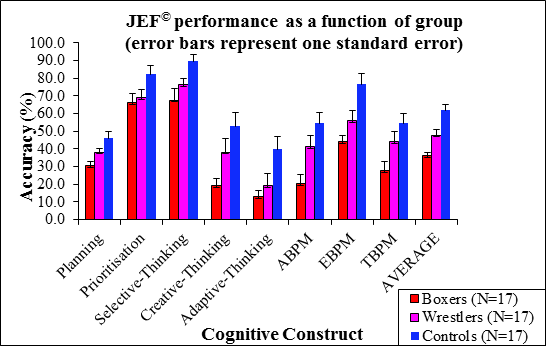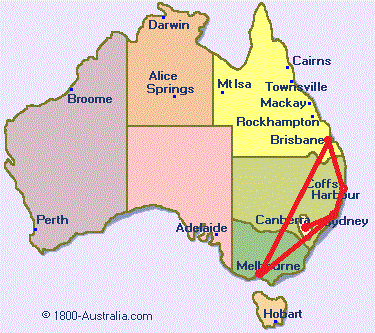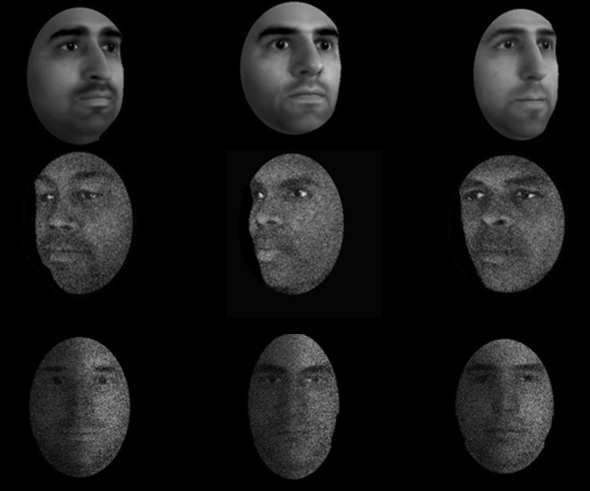 Dr Jansari studied Experimental Psychology at King’s College Cambridge followed by a PhD at the University of Sussex with Alan Parkin and then a post-doctoral fellowship in the States with Antonio Damasio and Ralph Adolphs. His research in cognitive neuropsychology has spanned amnesia, facial emotions, prosopagnosia, synaesthesia, mindfulness meditation and most notably assessment of executive disorders using a novel virtual reality task that he has developed and which has been translated into ten languages.
Dr Jansari studied Experimental Psychology at King’s College Cambridge followed by a PhD at the University of Sussex with Alan Parkin and then a post-doctoral fellowship in the States with Antonio Damasio and Ralph Adolphs. His research in cognitive neuropsychology has spanned amnesia, facial emotions, prosopagnosia, synaesthesia, mindfulness meditation and most notably assessment of executive disorders using a novel virtual reality task that he has developed and which has been translated into ten languages.
In 2004, Dr Jansari was awarded the International Neuropsychological Society’s Cermak Award for best research in memory disorders; in 2008, he won a Media Fellowship from the British Association for the Advancement of Science for his skills in communicating science to the general public; and in 2014, he was taken onto the BBC’s Academy for Expert Voices. He has lectured extensively around the world and collaborates with scientists in 15 countries spanning five continents. Here he talks us through his latest geographical, neurological challenge.
In 2010, I managed to run a half marathon (in just under two hours if you are asking…) but this year I did an ‘academic marathon’ – I gave 9 invited talks, in 5 cities, on 2 continents in 5 weeks. Like all endurance events, there had been training in the past – I had been to Australia a few times before, and therefore knew neuropsychologists in a number of different places who had wanted me to come to give research talks. On one of these previous trips, I had met a British neuropsychologist who teaches at the National University of Singapore (NSU), who invited me to speak there if I was ever coming through. Additionally, given that one of our own Goldsmiths’ PhD students, Aga Janik had told me that she was moving to Singapore for a temporary lectureship, we arranged for me to give a talk at her new university, James Cook University (JCU), an Australian university that has a satellite campus in Singapore.

London to Singapore via Dubai and then after two talks, onto Sydney
The academic marathon started with a long flight via Dubai to Singapore, where I spent a day and a half trying to get over jetlag -if you haven’t experienced it, jetlag means that you feel totally fine in the first part of the day but then at some point, feel like you have been hit by a truck! Added to this, maybe because of the standard lurgies that are being recycled when you are flying in an aluminium can for half a day at 30,000ft, I had a very sore throat. Therefore, when I rocked up at JCU on 25th February, I wasn’t in the best physical state, as not only was I recovering from jetlag, but worse still I coughed throughout my talk – at some points, I had to apologise to the audience for sounding like I was crying because of my throat! But plenty of lozenges got me through…. I gave my ‘Where’s the boss?’ talk about my virtual reality assessment of executive functions, which I first developed in 2004. I have been refining it since then, extending the work beyond acquired brain injury. Having created the Jansari assessment of Executive Functions (JEF©) as a more ecologically-valid assessment than the rather blunt instruments that clinicians currently use, we have since published five papers using it to look at the impact of ecstasy, alcohol, cannabis, nicotine, and more recently, coffee on the executive functions of healthy individuals. Recent work (see graph below) has taken the research into looking at the impact of repeated head knocks in contact sports, an issue known as ‘Chronic Traumatic Encephalopathy’ or CTE – indeed, a lovely study conducted by one of my BSc students comparing amateur boxers, amateur wrestlers and people who don’t engage in contact sports found a direct link between level of contact in a sport and poorer performance on JEF©. Given that this work could potentially form part of an impact case study in the next REF, I think that this work could be the impact of the impact of impact J In a final aspect of this work, we are using JEF© to look at the potential contributory role of head injuries during childhood on subsequent criminal behaviour, and the cycle of reoffending that means that 50% of individuals are back in prison within a year of being released. Click to hear lecture at JCU.

Jansari & Walczak (in prep). The impact of impact on executive functions in contact sports
The following day, I went to NSU where I had been asked to talk about memory rehabilitation to Masters students. Although this is an area that I don’t work in that much these days, it was useful to have to prepare a talk to brush up on my skills. The talk went well but the exclusively female Chinese Singaporean student body was very quiet and not really willing to ask questions which was a disappointment – this is quite usual culturally so if it happens to you, don’t take it personally!
After a couple of days of catching up with my best friend from undergraduate days and also a former student from UEL who both live in Singapore, I did the seven hour flight to Sydney where the major part of the marathon was going to take place. After a couple of days of adjusting to the new time zone (only three hours different from Singapore so the worst part of the jetlag had been taken care of by now), I gave two talks organised by a clinical psychologist in Sydney. The first of these was my generic ‘Life of Brian (the brain)’ talk which is an overview of the field of cognitive neuropsychology – at the end, I make an analogy between the 3000 years since the word ‘brain’ was written down by the ancient Egyptians, and a 30 year old man called Brian, tracing major landmarks through his life….

My route around Australia from Sydney to Canberra, back to Sydney, then Coffs Harbour, Brisbane, Melbourne and finally back to Sydney
Having survived my first two talks in Sydney, I recovered a bit, and on 8th March moved to the Australian National University (ANU) in Canberra, the capital. There, I had been invited to give a talk by a former colleague from UEL. Since one of the leading Australian researchers in face-recognition, Eleanor McKone is at ANU, I decided to give my talk entitled ‘The man who mistook his neuropsychologist for a popstar: The fascinating world of face-blindness, super-recognition and everyday face-recognition’. In this talk, I go through research suggesting that faces are treated specially by the brain with a dedicated processing system and demonstrate evidence from a brain-damaged patient I have worked with for years who cannot recognise once-familiar faces, such as family or famous celebrities. I then flip into the reverse of this which is my work on people who are exceptional at face-recognition, i.e. ‘super-recognizers’, covering my work with the Metropolitan Police where we are using cognitive psychology to catch criminals. It was great to meet Eleanor’s team, especially since one of them has been working on the Own Race Effect, in which people tend to be better at individuating people from their own ethnic race than those from other races (see example stimuli below from my work); I have done some work on this and we discussed sharing ideas, paradigms, etc..

Test items in our Own Race Bias study with three panels for three different races (South Asian, Black and White) with the faces becoming more difficult progressing through the test
After ANU, I took a bit of a break for ten days during which I tried to catch up with work back home, and then on the 18th of March I gave my executive functions talk at Griffith University in Brisbane. They run a big clinical training programme and so students and faculty there were interested in the assessment angle of this work. Without taking much of a breath, I moved on to Melbourne. I was scheduled to give two talks again on the executive functions work at the Royal Melbourne Hospital for Children and the Murdoch Children’s Research Institute. These two places are within one of the most concentrated medical areas in the world and are particularly world-leading in paediatric work. Therefore it was a privilege to give a talk to people who work with children with different forms of brain injury – I very much hope that this will result in some collaborations for the future using the children’s version of JEF©.
I ended my marathon on the 29th of March in Sydney at the University of New South Wales (UNSW). A team there had published a fantastic paper demonstrating that passport officers can make 1 in 7 errors when deciding whether or not someone is carrying the right passport (which is quite worrying in today’s global security setting….). They were therefore very interested in my face-recognition work, particularly the super-recognition work. Although this was the last talk, it was one of the best attended talks, totally packed with people having to bring in chairs – so a nice way to end! Afterwards, I had a great time talking to Professor Richard Kemp and Dr. David White, along with their team, about their work and possible research synergies.
And then I collapsed…… After an early dinner, I went back to my Airbnb room with the intention of having a rest for a bit before going out for a celebratory drink. However, suddenly the exhaustion hit me almost like the jetlag truck from a few weeks before, to the point where I was lying on the bed not even wanting to go to the bathroom to take off my contact lenses! And the following day, having moved to my friends’ house in the suburbs, I felt so googybrained that I lay horizontal on the sofa for most of the day making my way through four films from my friends’ extensive collection!!!!
So an exhausting marathon……but well worth it. Since coming back at the beginning of April, already two research projects using JEF© have been developed and are awaiting ethical approval, one in Singapore and one in Sydney. In addition, I’m in contact with the face-recognition researchers, at both the ANU and the UNSW, about possible collaborative projects and the researchers at the two centres in Melbourne are also very interested in using the children’s version of JEF© for work in paediatric brain injury.
Exhausting yes, but also very exciting and hopefully potentially fruitful in the future. I didn’t mention, by the way, that while trundling through Singapore and around Australia, I was also trying to buy a house back home in Brighton and because of a huge increase in stamp duty that was coming in on the 1st of April, I was juggling the work stuff with co-ordinating solicitors, mortgage people, valuers, etc. – my luck was in because I managed to complete on my house purchase on the 31st of March just two days after giving my last talk and five days before returning to London!!!!! How did I manage all of this without going mad? Mindfulness meditation – but that’s another story……
Dr. Jansari tweets around the world from @ashokjansari